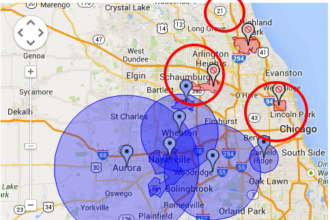Foes of the Patient Protection and Affordable Care Act (PPACA) made a big point of complaining about the length of the bill. Personally, I think that criticism is unfair, because the law deals with a complex industry that’s almost one-fifth of the economy.
Foes of the Patient Protection and Affordable Care Act (PPACA) made a big point of complaining about the length of the bill. Personally, I think that criticism is unfair, because the law deals with a complex industry that’s almost one-fifth of the economy.
But today I read a brilliant two-sentence proposal in the letters section of the Wall Street Journal from David J. Gross, a Florida dermatologist. He was reacting to an article about the extensive cardiac care received by former vice president Dick Cheney.
Before any of Dick Cheney’s heirs get a nickel from his estate, Medicare should be reimbursed for the difference between what it paid out versus what he paid in all these years. This same paradigm should apply to all of us.
(Actually the essence is expressed in just one sentence.)
If we actually implemented that solution it would have significant salutary effects:
- Make Medicare financially viable for the long run
- Improve inter-generational equity
- Instill cost consciousness in Medicare beneficiaries, thus keeping a lid on expenses
- Reduce the need for an estate tax
Of course this proposal would have drawbacks and unintended effects:
- It would cause Medicare recipients to spend down or gift their estate. This phenomenon is well known among patients trying to qualify for Medicaid payment for nursing homes
- It would penalize those who are sickest
- It might cause people to avoid needed care, harming health and ultimately driving up costs
- In some families, it might lead to tensions among the generations
- The rules to actually implement such a system would be lengthy in any case, so a simple solution would turn into a complex one
On balance I think this proposal deserves some serious consideration. Maybe a modified version, e.g., a 10 percent repayment could be tried at first







